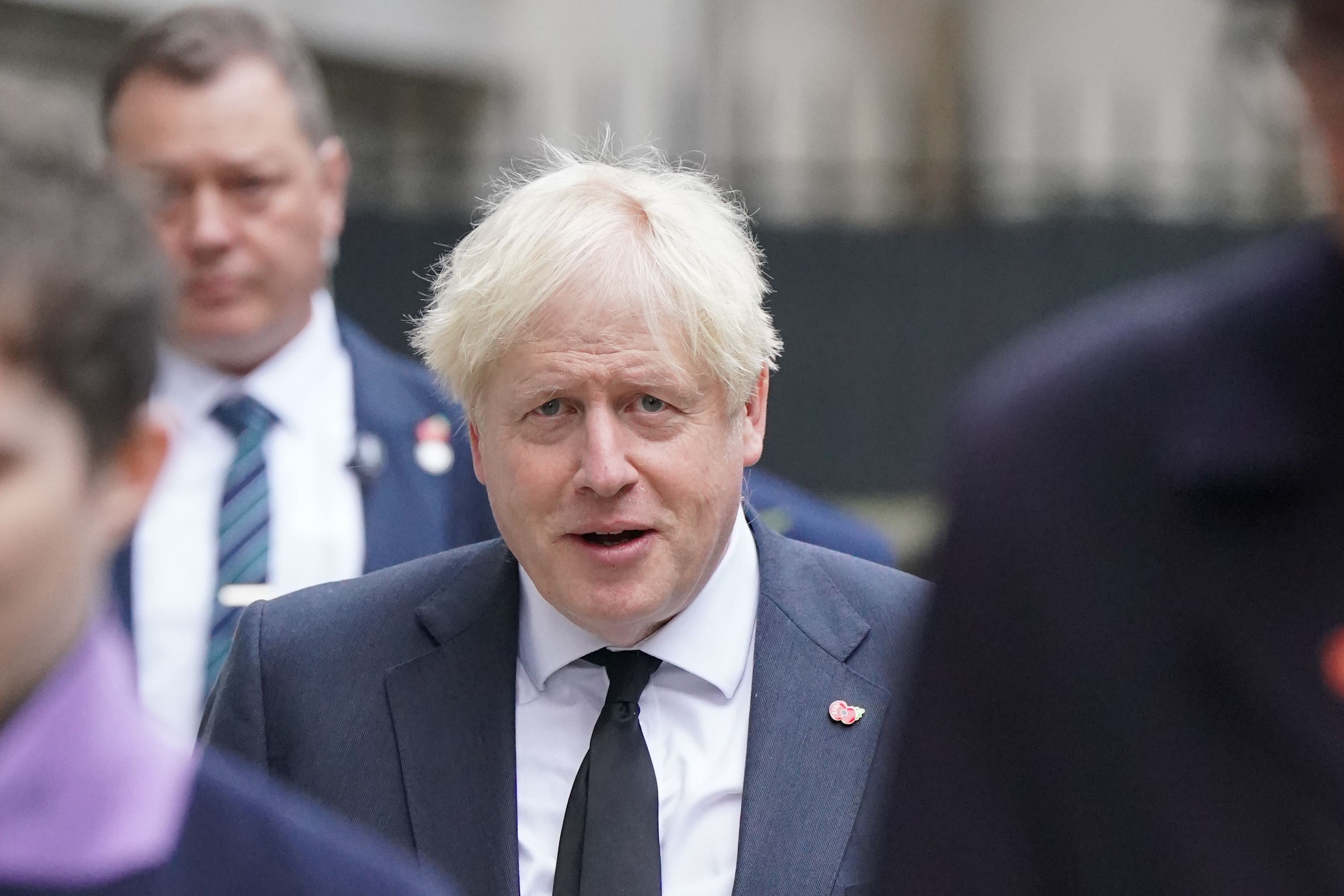
The position of the BBC chair is untenable, opposition parties have said, after a damning report by MPs on his role in securing an £800,000 loan for Boris Johnson.
The culture committee branded Richard Sharp guilty of “significant errors of judgement” by failing to declare his role in facilitating the credit line for Mr Johnson before he was named BBC chair by the then-prime minister. This week the BBC chair was recalled to appear before the committee and its report was published on Sunday.
Lisa Nandy, the shadow levelling up secretary, said Mr Sharp’s position was “increasingly untenable”, suggesting that he would have to go if he could not explain himself at an internal BBC inquiry.
“It’s becoming more and more difficult to see how Richard Sharp can continue in that role,” she told Sky News. “If questions can’t be answered then I think the integrity of the BBC is far more important than the position of one individual,” she said.
SNP MP John Nicolson – who sits on the cross-party Digital, Culture, Media and Sport Committee (DCMS), which produced the report – said he did not see “how he can carry on”, and suggested Rishi Sunak’s government should act now to remove him.
He told BBC’s Sunday With Laura Kuenssberg: “He has lost the trust of the BBC staff, that’s very clear – I’ve been deluged with messages from BBC staff saying they don’t see how he can head up the BBC anymore.”
“We knew he was a big Tory donor … but what he didn’t tell us was that he had facilitated an £800,000 loan for Boris Johnson, the prime minister, who then gave him the job – it’s all a bit banana republic,” Mr Nicolson added.
Mr Nicholson also told Sky News’ Sophy Ridge on Sunday: “I don’t see how he can carry on. How can he argue the BBC’s case, how can he talk about impartiality, given that he withheld this important information from us and given the low levels of trust that he now enjoys amongst BBC staff?”
“The report I think is pretty brutal,” he added, saying Mr Sharp “has broken the rules ... The rules quite clearly say that if you apply for a public service job like this you have got to be completely open about any conflict of interest.”
Mr Sharp’s failure to tell the DCMS about his meeting with Mr Johnson and Sam Blyth, a distant cousin, who backed the line of credit for Mr Johnson, meant that MPs were unable to properly scrutinise his suitability for the BBC role, the report said.
The report’s humiliating verdict that he should “consider the impact of his omissions” on trust in the BBC, and his own appointment, is likely to make it difficult for him to continue.
Andrew Mitchell, a Conservative minister and veteran MP, said decisions on the future of Mr Sharp are a “matter for the BBC” at the end of an internal inquiry and a separate probe by the office of the public appointments commissioner.

But challenged by Laura Kuenssberg that it was ultimately up to the government to appoint and fire BBC chairs, Mr Mitchell insisted that it was “largely” a matter for the BBC board to make a recommendation on his future to the government.
Mr Nicolson said the government already has the information it needs to decide whether to ask Mr Sharp to resign. “What are ministers waiting for? What bit of information do they not have? The facts are abundantly clear.”
Mr Sharp admitted that he set up a meeting between Mr Johnson and Mr Blyth but denied giving any financial advice. A spokesperson for Mr Sharp said he “regrets” not telling MPs about his involvement with Mr Blyth “and apologises”.
The DCMS said there was an “unresolved issue” as to why Simon Case, the cabinet secretary, believed Mr Sharp had given financial advice to Mr Johnson, despite Mr Sharp’s denial that it amounted to advice. They called on the Cabinet Office to “clear up the confusion”.
Former culture minister Lord Vaizey said Mr Sharp’s actions were not a “hanging offence”. The Tory peer told BBC Radio 4’s Broadcasting House: “You can acknowledge it is a blunder without saying it is hanging offence.”

On whether Mr Sharp’s position was untenable, Mr Mitchell said: “We shouldn’t rush to judgement on that, we should allow this process to conclude. And then in the end, it will be a matter for the BBC, of which he is the chairman, to make a final decision.”
Deputy Liberal Democrat leader Daisy Cooper said Mr Johnson “must now also face the music and answer questions from an independent inquiry” – calling on Mr Sunak to ask his ethics adviser to look into the matter.
The report piled further pressure on Mr Johnson after it was revealed the Met Police has been asked to reopen its Partygate investigation.
The deputy chair of the London Assembly’s Police and Crime Committee has written to the Met commissioner, Mark Rowley, asking if he was “taking new information into account when making a decision regarding the reopening of the investigation”.
It follows details released by an ITV podcast claiming Downing Street staff corroborated before filling out questionnaires and No 10 officials destroyed evidence before the Sue Gray inquiry could investigate.







